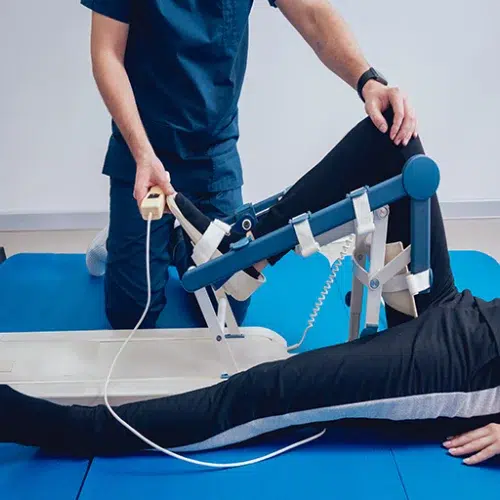Top 10 Things You Must Know About Musculoskeletal Injuries – ER of WATAUGA

Introduction
Every year, millions of people experience musculoskeletal injuries, which affect the bones, muscles, ligaments, tendons, and soft tissues of the body. These injuries can result from sports, workplace accidents, overuse, or simple daily activities. Whether it's a sprained ankle or a herniated disc, understanding the causes and solutions can help prevent long-term pain and disability.
What Are Musculoskeletal Injuries?
Musculoskeletal injuries refer to damage or stress to the body’s movement system. This includes:
-
Bones
-
Muscles
-
Tendons
-
Ligaments
-
Cartilage
-
Joints
These injuries vary in severity—from mild strains to serious fractures.
Common Types of Musculoskeletal Injuries
1. Sprains and Strains
-
Sprains affect ligaments, while strains affect muscles or tendons.
-
Caused by over-stretching, twisting, or sudden impact.
-
Common in ankles, wrists, and knees.
2. Fractures (Broken Bones)
-
Often result from high-impact trauma or falls.
-
Require immediate medical care.
3. Tendonitis
-
Inflammation of tendons, commonly in elbows, shoulders, and knees.
-
Caused by repetitive motion or overuse.
4. Bursitis
-
Inflammation of the fluid-filled sacs (bursa) that cushion joints.
-
Commonly affects hips, shoulders, and elbows.
5. Back Pain and Herniated Discs
-
Due to improper lifting, posture issues, or injury.
-
Can affect nerves and limit mobility.
6. Dislocations
-
Occur when bones are forced out of their normal position in a joint.
-
Needs emergency care to prevent complications.
Causes of Musculoskeletal Injuries
-
Sports Injuries
-
Poor Posture
-
Accidents or Falls
-
Overuse or Repetitive Motion
-
Improper Lifting Techniques
-
Workplace Strain (especially manual labor jobs)
Symptoms to Watch For
-
Swelling
-
Pain and tenderness
-
Bruising
-
Limited range of motion
-
Weakness
-
Stiffness
-
Numbness or tingling (in nerve-related cases)
Diagnosis of Musculoskeletal Injuries
At ER OF WATAUGA, diagnosis often involves:
-
Physical Examination
-
X-Rays
-
MRI Scans
-
Ultrasound
-
CT Scans
These tools help doctors pinpoint the extent and location of the injury.
Treatment Options
1. RICE Method (Rest, Ice, Compression, Elevation)
-
Useful for minor sprains and strains.
2. Medications
-
NSAIDs like ibuprofen for pain and swelling.
3. Physical Therapy
-
Rebuilds strength, improves range of motion, and speeds up recovery.
4. Surgery
-
Required for severe injuries such as torn ligaments or fractures.
5. Immobilization
-
Use of casts, splints, or braces to prevent further injury.
Recovery and Rehabilitation
-
Timely treatment reduces long-term damage.
-
Gradual return to activity is essential.
-
Stretching and strengthening exercises promote full recovery.
-
Follow-ups are important to monitor progress.
How to Prevent Musculoskeletal Injuries
-
Warm up before activities
-
Use ergonomic furniture
-
Lift objects properly (bend at knees, not back)
-
Take breaks during repetitive tasks
-
Maintain a healthy weight
-
Stay hydrated and eat balanced meals
-
Wear proper footwear
When to Visit ER OF WATAUGA
Visit ER OF WATAUGA if you experience:
-
Severe pain
-
Inability to move a joint or limb
-
Visible deformity
-
Sudden swelling or bruising
-
Numbness or tingling
Our facility is equipped with advanced imaging, trained emergency physicians, and on-site physical therapy consultations.
Why Choose ER OF WATAUGA?
-
24/7 emergency care
-
Board-certified emergency physicians
-
Short wait times
-
State-of-the-art diagnostic equipment
-
Compassionate care tailored to each patient
FAQs About Musculoskeletal Injuries
1. What is the difference between a sprain and a strain?
-
A sprain affects ligaments; a strain affects muscles or tendons.
2. How long do musculoskeletal injuries take to heal?
-
Mild injuries can heal in a few days; serious ones may take weeks to months.
3. Can I treat musculoskeletal injuries at home?
-
Minor injuries may be treated at home using RICE. Severe injuries require medical attention.
4. Is surgery always needed?
-
No. Many injuries heal with rest, medication, or physical therapy.
5. Can children get musculoskeletal injuries?
-
Yes. They are common in active children and should be taken seriously.
Conclusion
Musculoskeletal injuries are common but treatable. Early detection, proper care, and expert help can make a significant difference in your recovery. Whether it's a sports injury, workplace strain, or simple misstep—ER OF WATAUGA is your trusted partner in healing and relief.
- Art
- Causes
- Crafts
- Dance
- Drinks
- Film
- Fitness
- Food
- Games
- Gardening
- Health
- Home
- Literature
- Music
- Networking
- Other
- Party
- Religion
- Shopping
- Sports
- Theater
- Wellness


